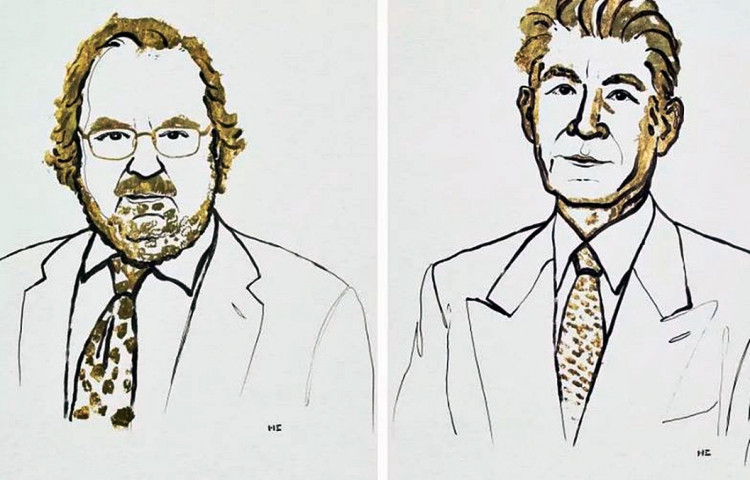The Nobel Assembly at Karolinska Institutet inSweden yesterday awarded the 2018 Nobel Prize in Physiology or Medicine jointly to Dr. James P. Allison (an American from Texas) and Dr. Tasuku Honjo (a Japanese from Kyoto) for their discovery of "cancer therapy by inhibition of negative immune regulation."
Honjo and Allison together were conferred the 2014 Tang Prize in Biopharmaceutical Science for the same achievement. Founded by the Republic of China (Taiwan) in 2014, the Tang Prize recognizes and supports contributors for their revolutionary efforts in the research fields critical to the 21st century.
In winning this year's Nobel Prize, Honjo and Allison are credited with pioneering the burgeoning and promising new field of "immunotherapy," a method that harness the power of the body to help heal itself. Immunotherapy unleashes the body's immune system to target cancerous tumor cells and has fewer devastating side effects compared to chemotherapy.
Dr. Allison and Dr. Honjo were conferred the Nobel for identifying two different brakes on the immune system which, when turned off, allow the body's defense system to attack cancerous cells faster and more effectively.
Dr. Allison was one of two scientists who discovered the blocking effect for one such brake -- CTLA-4 or checkpoint inhibitor molecule -- in 1995. Honjo discovered another brake cvalled PD-1 at about the same time. Once these brakes were identified, researchers were able to work on how to turn them off and get T-cells (or white blood cells) to start attacking cancerous tumors.
The goal of immunotherapy is to neutralize these brake molecules (such as CTLA-4 and PD-1) and these are what Allison and Honjo have been working on. When these brakes are neutralized, the white blood cells can get to work on destroying cancer cells.
Immunotherapy is now, possibly, "the most important recent discovery for cancer therapy in general, as an alternative to chemo," said Dr. Pierre Goldstein, emeritus professor at the Marseille-Luminy Immunology Centre in France.
Dr. Goldstein also said immunotherapy can control from 20 percent to 50 percent of certain advanced melanomas, "which is something considering that situation would have been a death sentence not too long ago."
Immunotherapy has only been used on patients for a few years, however. Despite this, more than 800 clinical trials related to immunotherapy are now taking place worldwide.
Also, more than 30 drugs are under development as of June, said the American Cancer Society. Immunotherapy, however, is less effective for certain cancers such as pancreatic and brain cancer.
The U.S. Food and Drug Administration (FDA) has approved a number of immunotherapy treatments, with some targeting PD-1.






